Tag: Markets & Value Chains

COVID-19 Pandemic Linked to 14% Increase in Underweight Children in India
The nutrition of Indian children suffered dramatically during the COVID-19 pandemic, according to new research from the Tata-Cornell Institute for Agriculture and Nutrition (TCI) that found a sharp rise in underweight children.
In a study published in Economic and Political…
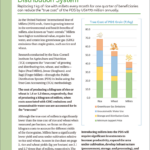
Promoting Millets in the Public Distribution System
This special policy brief provides cost-saving estimates associated with the potential introduction of millets into India’s Public Distribution System (PDS), which provides subsidized food to more than 800 million people. This analysis provides policymakers and other stakeholders with valuable information that can be used to...

Urban Farms Co. and the Potential for Social Enterprises to Catalyze Food Systems Change
Today, 56% of the global population resides in urban areas. This proportion is expected to increase to 70%, with the change driven largely by Asian countries. In India alone, it is estimated that by 2050 the number of people living…
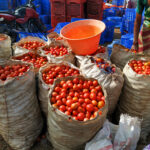
TCI Researcher Comments on Skyrocketing Tomato Prices
Jocelyn Boiteau, a postdoctoral associate at the Tata-Cornell Institute for Agriculture and Nutrition (TCI), was quoted by CNN on India’s recent spike in tomato prices. The cost of tomatoes rose more than 400% due to crop failures, leaving many unable…
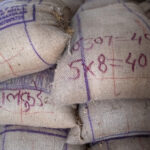
How Soybean FPOs Can Use Futures Contracts to Manage Risk
Price volatility affects all members of the agricultural value chain, but smallholder farmers in developing countries are particularly vulnerable to adverse prices. In general, price hedging mechanisms for smallholder farmers are limited and, in many cases, not used. With appropriate…
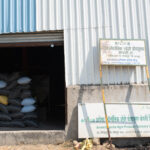
Soybean Value Chains and Market Efficiency: Lessons from a Field Visit to FPOs in Latur
In a recent visit to Latur, a district in Maharashtra, India, we gained an understanding of the marketing channels and infrastructure available for local soybean producers. In India, Latur is a significant agricultural hub for soybean cultivation, with the second-highest…
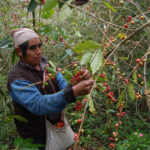
A Tale of Two Aggregation Models: FPO Promotion in India and Mexico
This is the first in a series of blog posts exploring the experiences of farmer producer organizations (FPOs) and FPO promotion in India and Latin America. The next post will examine soy bean value chains and FPOs in Maharashtra, India.…

The First Step to Reducing Food Loss and Waste Is Deciding What It Is
As it makes its journey from the farm to consumers’ plates, around a third of the total food produced in the world is lost or wasted. Reducing such waste is key to efforts to achieve sustainable food systems, but before…

Can We Agree on a Food Loss and Waste Definition? An Assessment of Definitional Elements for a Globally Applicable Framework
Abstract Recent strategies for achieving sustainable food systems have called for reducing food loss and waste (FLW), most notably Sustainable Development Goal (SDG) target 12.3. This review aims to compare FLW definitions that are relevant to SDG target 12.3 and opportunities to harmonize the FLW definition. Using the FAO...
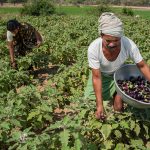
TCI Awarded a New Grant from Walmart Foundation to Enhance Its FPO Database
The Tata-Cornell Institute for Agriculture and Nutrition (TCI) is embarking on the next phase of its project to support smallholder farmers in India through the promotion of effective farmer producer organization (FPO) models. The centerpiece of this effort is the…

